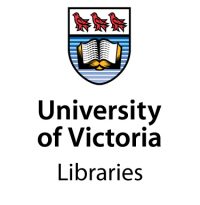What is Citizen Science?
The term Citizen Science refers to the involvement of the general public in scholarly research activities. A more detailed definition by CitizenScience.gov emphasizes the concept’s potential for positive societal impact:
In citizen science, the public participates voluntarily in the scientific process, addressing real-world problems in ways that may include formulating research questions, conducting scientific experiments, collecting and analysing data, interpreting results, making new discoveries, developing technologies and applications, and solving complex problems.
What is the purpose of Citizen Science Month?
Citizen Science Month encourages the public to participate in academic research and highlights numerous scientific projects around the globe that bring the idea of participatory research to life. Successful Citizen Science projects have tackled the ecological fingerprint of Covid-19, climate change, biodiversity conservation, water quality, the long-term effects of chemical pollution, and new explorations of the Earth’s atmosphere.
Open Scholarship and Citizen Science
Traditional scientific projects are often shaped by the sometimes narrow interests of the researchers and their institutions, research activities carried out behind closed doors, findings locked behind paywalls, and their relevance limited to academic experts.
Citizen Science opens up the aim and design of research projects. It embraces the participation of the wider public in the academic enterprise, targets broader benefits for society, and supports a universal approach to communication of and more equitable access to research outcomes. It is a pursuit to democratize science. It is closely related to the core values behind the Open Scholarship movement: participation, accessibility, inclusion, transparency, and free dissemination of and low-threshold access to information and knowledge.
UNESCO named Citizen Science as one of the core concepts at the foundation of Open Scholarship in the UNESCO Recommendation on Open Science, emphasizing that it lays the foundation for improved dialogue between scientists and community members by enabling meaningful participation of the community in scientific discovery and empowering all stakeholders to shape research to meet their concerns and aspirations.
Citizen Science holds the potential to improve scientific literacy or raise awareness for sensitive ecological topics among its participants. Some approaches have a positive effect on the implementation of the UN’s Sustainable Development Goals (SDG).
Citizen Science at the University of Victoria
The core values behind Citizen Science align with the University of Victoria’s and UVic Libraries’ strategic goals of promoting community-engaged learning and research. Several research projects under the leadership or participation of UVic contain a Citizen Science component:
- The SchoolShake project will collect seismographic data by partnering up UVic researchers with K-12 schools across Vancouver Island
- Digital Fishers is only one of several Citizen Science projects by Ocean Networks Canada at UVic. It asks for help from Community Scientists to identify maritime animals in a video-game-like web application.
- The Adult Salmon Diet Program is a study under the leadership of Dr. Will Duguid, which is teaming up with recreational fishers to gather data on the diet of adult Chinook and coho salmon found along the coast of BC.
- The Metchosin Flying Insect Biomass Study (MFIBS) is a long-term research project led by Dr. Neville Winchester, that collects and analyzes data on the development of insect population levels with the help of community scientists.
Data management tips and tools for Citizen Science projects
Following good data management practices in Citizen Science is especially important for generating data that is open, trustworthy, and reusable by the research community. This can pose a challenge in some fields, but there are many available resources available to help.
- Document your data
In order for data to be reusable, the context in which they were collected and analyzed needs to be understood by others. From the outset, creating a plan for how you will manage your data throughout a project can help you stay on track and identify issues to address ahead of time.- The DMP Assistant is a national data management planning tool UVic Libraries supports.
- Consult the UVic Libraries website for more guidance or take one of our workshops on tools for data management.
- Publish your work
Sharing data and other outputs from Citizen Science supports transparency and increases research impact. Depositing data and research materials into a trusted data repository makes them more discoverable and reusable by the community, and allows you to receive recognition for your work.- UVic Dataverse is the Libraries’ research data repository and is suitable for many fields of research. Depositors can create their own datasets and collections, which can be cited in journal articles and openly discoverable across major search engines.
- Trusted data repositories offered by research communities are also great resources for publishing.
- UVicSpace is the University of Victoria’s institutional repository. It collects, preserves, and disseminates, securely and reliably, the intellectual and creative digital works by the UVic community and its partners.
- Use available tools
The Citizen Science movement has given rise to many software applications and tools available to the public for leading research data collection and analysis. These have standards and tools for data management embedded within to help users.- The SciStarter Tools database lists many tools and projects available for starting citizen science projects.
- Zooniverse is a popular platform for building and crowdfunding Citizen Science projects.

